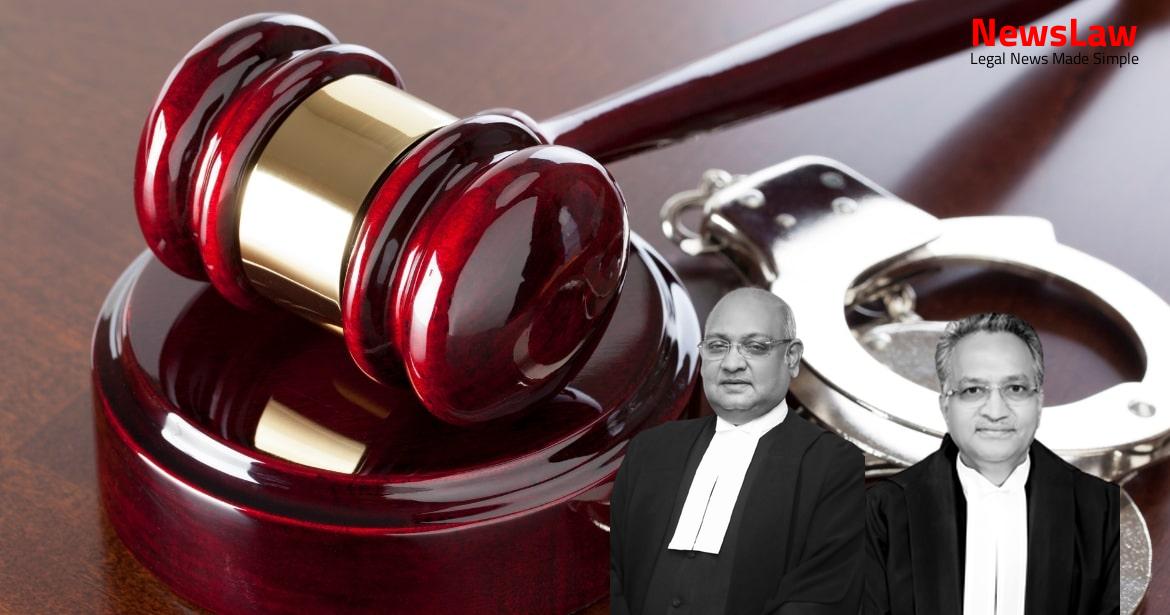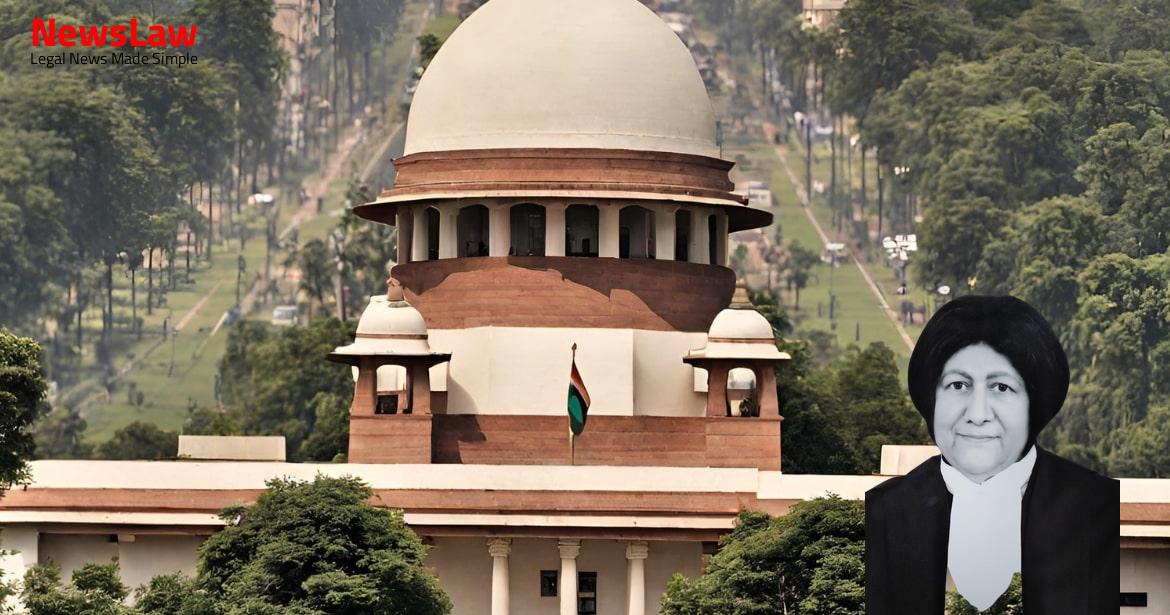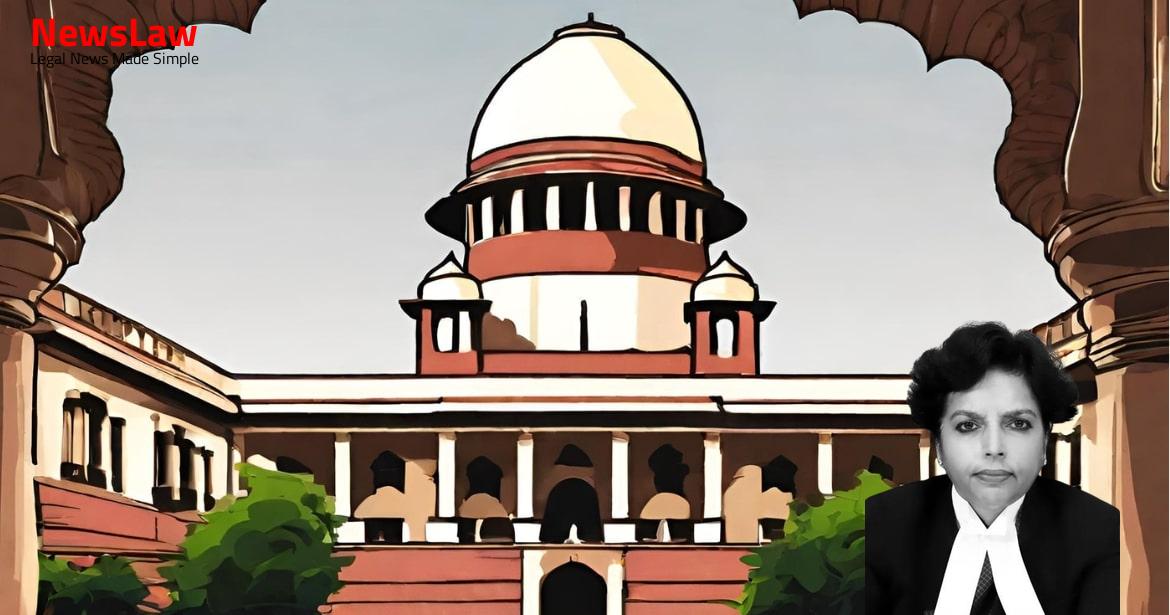In a recent legal case, the High Court delved into the intricacies of setting aside a resolution and the Collector’s order. The court’s legal analysis emphasized the importance of complying with directives and the statutory scheme. This blog post provides insights into the critical aspects highlighted in the judgment, shedding light on legal procedures and adherence to laws.
Facts
- The High Court set aside the order passed by the Collector dated 31.12.2020
- The resolution dated 19.10.2020 was also annulled by the High Court’s order
- This appeal challenges the judgment of the High Court in Writ Petition No. 238 of 2021
- Respondent No.1, who was elected as the Sarpanch of the village of Karajkheda, challenged a resolution passed against him by the Gram Panchayat.
- The Collector directed for a Special Gram Sabha to be held to decide on the no-confidence motion passed against Respondent No.1.
- The resolution was moved on 19.10.2020, and according to the guidelines, it was required to be considered by the Special Gram Sabha within 10 days from the Collector’s order.
- As the period had expired, Respondent No.1 argued that the process could not be continued further.
- The High Court allowed the writ petition filed by Respondent No.1, setting aside the resolution passed by the Gram Panchayat.
- The matter was then taken to the High Court by way of a Writ Petition (C) No. 238 of 2021.
- The Group Development Officer, Class-1, Panchayat Samiti, Osmanabad was appointed as the Presiding Officer of the Special Gram Sabha to decide on the no-confidence motion against the Sarpanch.
- The appellants have approached the court through the present appeal, challenging the decision of the High Court to set aside the resolution passed by the Gram Panchayat.
Also Read: Legal Analysis on Diplomatic Immunity Exception Case
Analysis
- The analysis section of the judgment discussed the actions that should have been taken based on the decision of the Collector.
- It highlighted the importance of following up on the Collector’s directives.
- The judgment suggested that further steps should have been directed in line with the Collector’s decision.
- The direction issued by the Collector on 31.12.2020 aligns with relevant provisions
- The Collector’s order is based on indisputable facts
- The conformity of the direction with the law is evident from the facts presented
- Amended Section 35-1A of the Village Panchayat Act modifies the provisions for panchayats where the Sarpanch is directly elected.
- Changes include requiring a two-thirds majority for a no-confidence motion, and the ratification process by a special Gram Sabha via secret ballot.
- Specific time frames are provided for bringing a motion of no-confidence, and consequences of success or failure of such a motion are outlined.
- Absence of a provision indicating automatic lapse of a resolution if not placed before the Gram Sabha within a specified time is noted.
- Challenging the resolution before the Collector before ratification does not automatically mean the resolution has lapsed.
- Resolution cannot be assumed to have lapsed in law due to a direction from the concerned department of the Government of Maharashtra.
Also Read: Autonomy of Private Unaided Schools in Fee Determination
Decision
- No confidence motion passed on 19.10.2020 needs to be taken forward in accordance with law
- Post of Sarpanch to be held by Upasarpanch or as per order of the Collector
- Collector instructed to act as per statutory scheme expeditiously
- Special Gram Sabha to be convened immediately for ratification of the no-confidence motion
- Impugned judgment and order of the High Court set aside, parties directed to comply with Collector’s order
- Matter escalated to High Court and finally to this Court at the instance of respondent No. 1
Also Read: Land Ownership Dispute Legal Analysis
Case Title: SUBHASH Vs. SUREKHA HANUMANT BANKAR (2021 INSC 124)
Case Number: C.A. No.-000720-000720 / 2021



